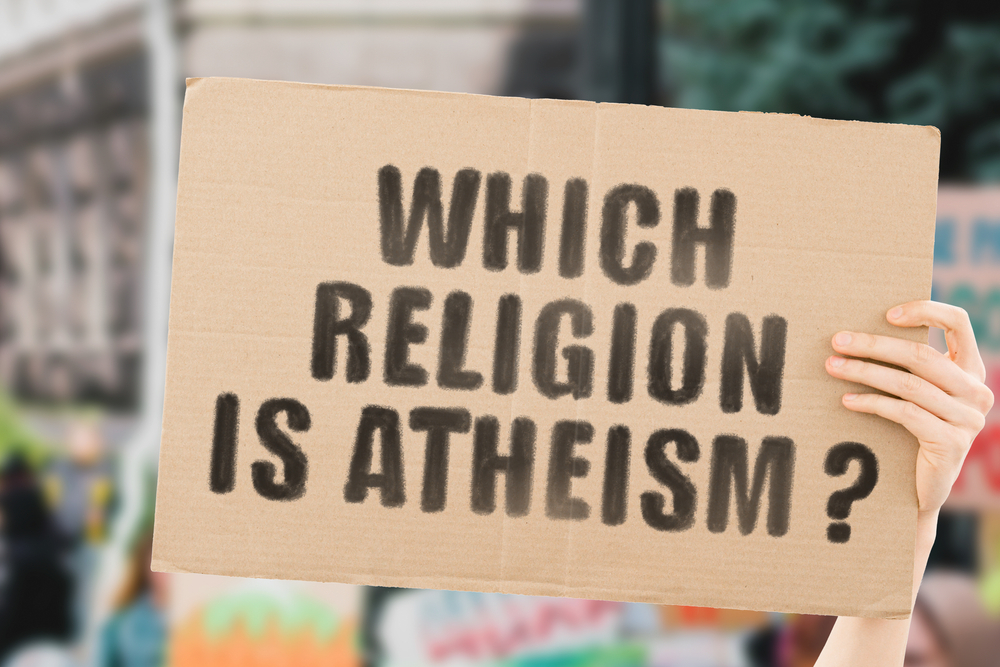
Religions and faiths have been inextricably tied to what it means to be human. An estimated 84% of the world’s population identifies with a particular religion, which is a social-cultural system that defines beliefs, morals, ethics, behaviors, and world views. For many adherents, religious beliefs and creeds connect them to faith in the divine, the supernatural, guidance for daily living, as well as beliefs about an afterlife and how practices during life can or cannot impact what happens after death. Atheism and secular humanism are two belief systems or philosophies that are described by a lack of belief in God or other gods, and although connected in ways, are not exactly the same.
Establishing Non-Belief
Many people recognize atheism as an absence or lack of belief in the existence of deities. Historically, the terms “atheist” and “atheism” have had various connotations, including referring to those who did not worship the deities in mainstream faiths, those who were believed to be condemned or forsaken by certain gods, or those who were not committed to a particular faith system. Atheism emerged in the sixteenth century, and in the seventeenth and eighteenth centuries, self-described atheists began to grow in popularity and visibility.
Secular humanism, often referred to as just humanism, rejects the belief in a deity or religious dogma and superstition as the foundation for morality and associated decision-making. This philosophy asserts that humans don’t need religion to be moral or ethical. Unlike some leading faiths, humanism doesn’t view mankind as inherently good or evil. Humanists often find themselves in a continual pursuit of truth as evidenced through scientific exploration and philosophy. Any ideology, whether religious or political, should not be accepted or rejected simply on faith. Although the term “secular humanism” was coined in the mid-1800s in reference to the idea that humans should focus on things that are rational and can be explained through knowledge, the modern definition as an ethical, rationalist worldview was formed in the 1930s.
Connecting Atheism and Humanism
While both atheism and humanism may appear to be belief systems built on the absence of deities, it’s important to remember that humanism is not necessarily irreligious or anti-religion. Humanists assert that belief in God is not necessary for people to establish morals and ethics. The confusion probably arises from the fact that many self-described humanists are also atheists. But being an atheist or even an agnostic doesn’t necessarily make a person a humanist also. In fact, many adherents of a humanist worldview would be opposed to government-established atheism that violates the ideas of freedom and democracy. For example, some of the most vocal critics of the former Soviet Union, an atheist state, were humanists.
For many religious believers, deity and faith-based tenets often serve as the basis for morality and how others should be treated. Many humanists do believe in universal moral standards. The Golden Rule states that you should treat others as you would want to be treated. It is a maxim found in many religions and cultures. Some humanists have adopted the Golden Rule. The difference here is that they believe moral standards can and should be arrived at through knowledge, reason, and logic as opposed to divine intervention or belief in the supernatural.
In our efforts to see past differences and respect others’ beliefs or lack thereof, it’s important to understand different views and philosophies. Atheism and secular humanism are two distinct belief systems that are not the same, despite the presence of people who adhere to both. Humanists focus on the basis of morality and ethics, and how we use science and lived experiences to arrive at those standards.

